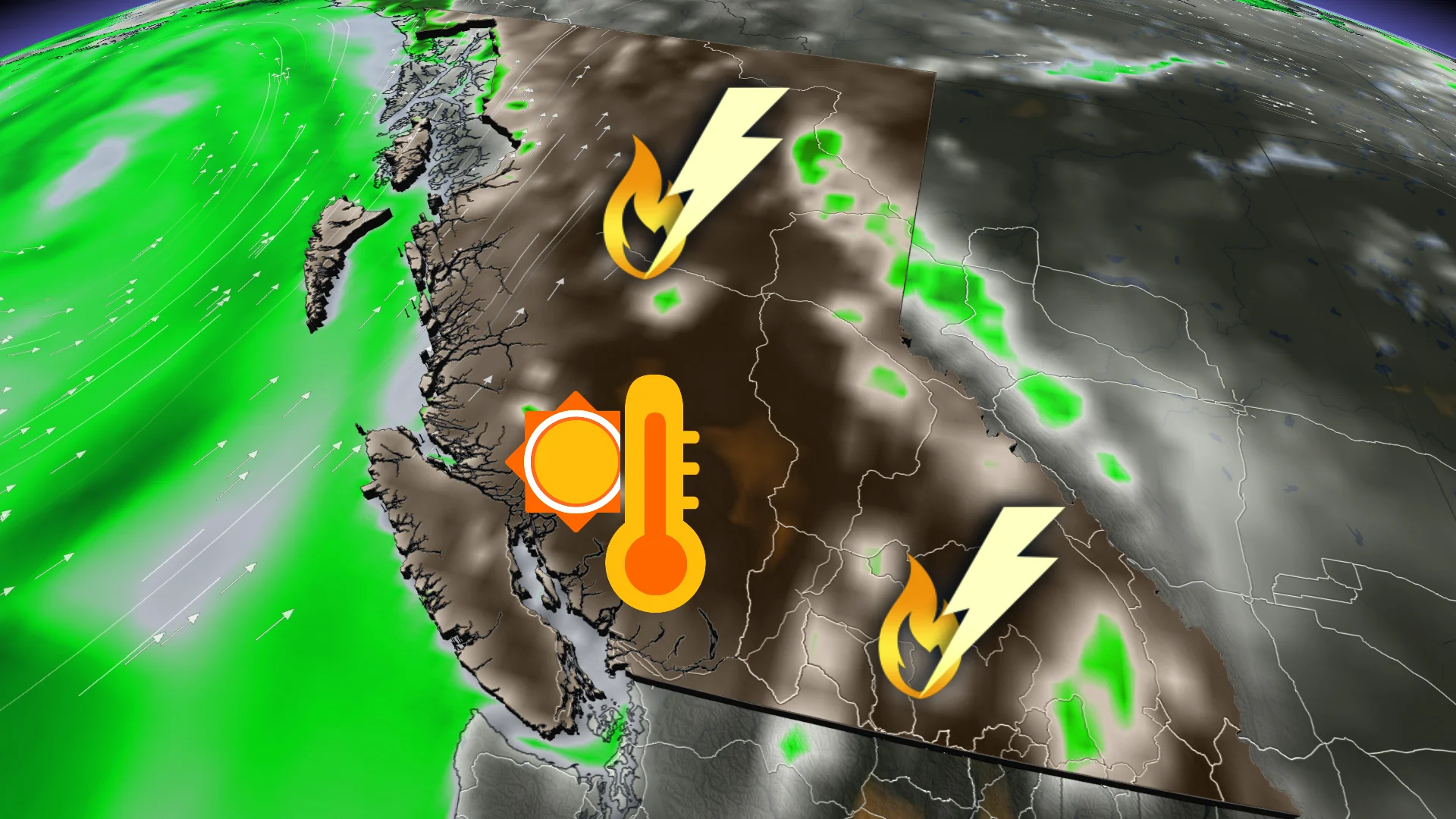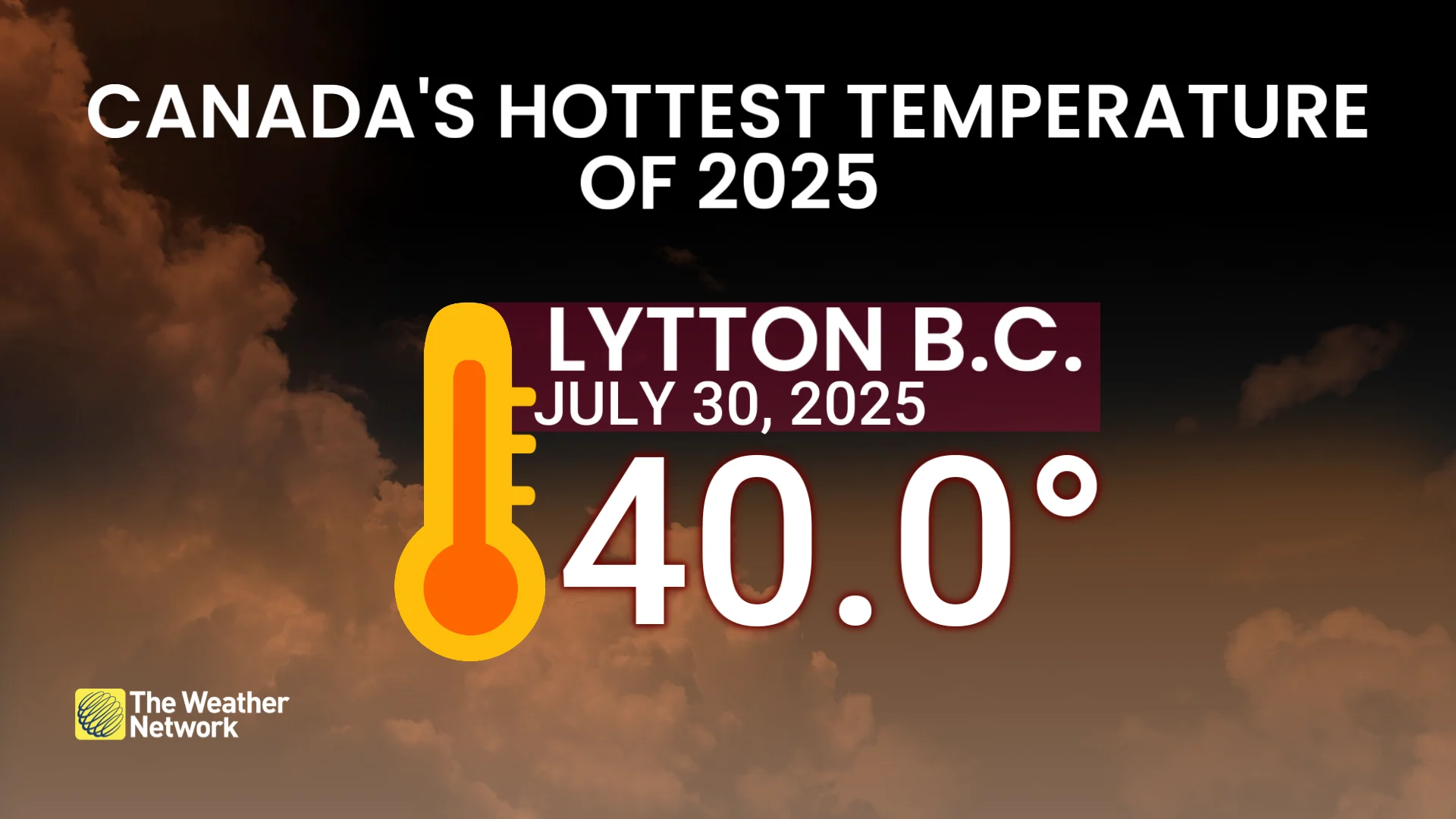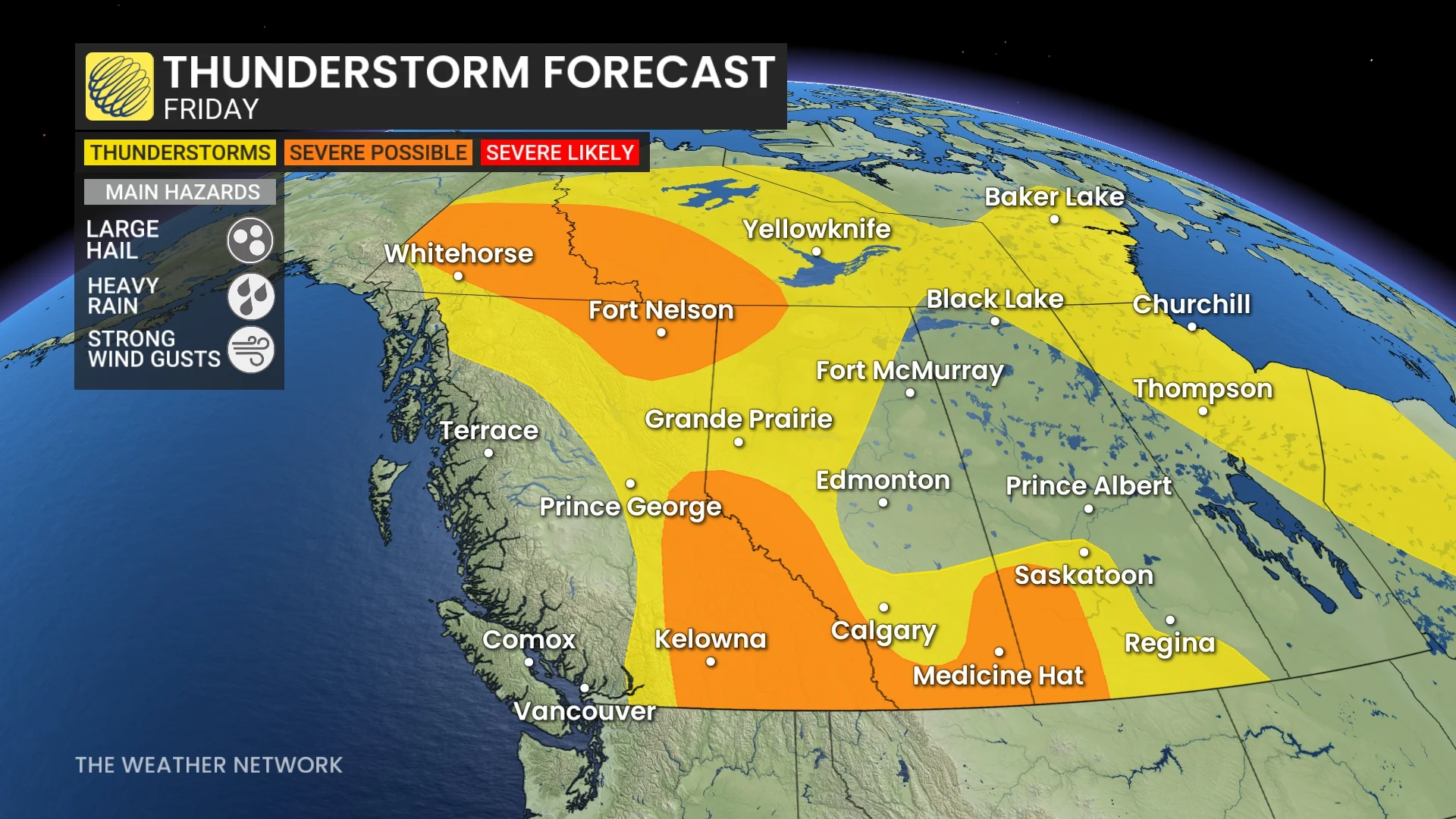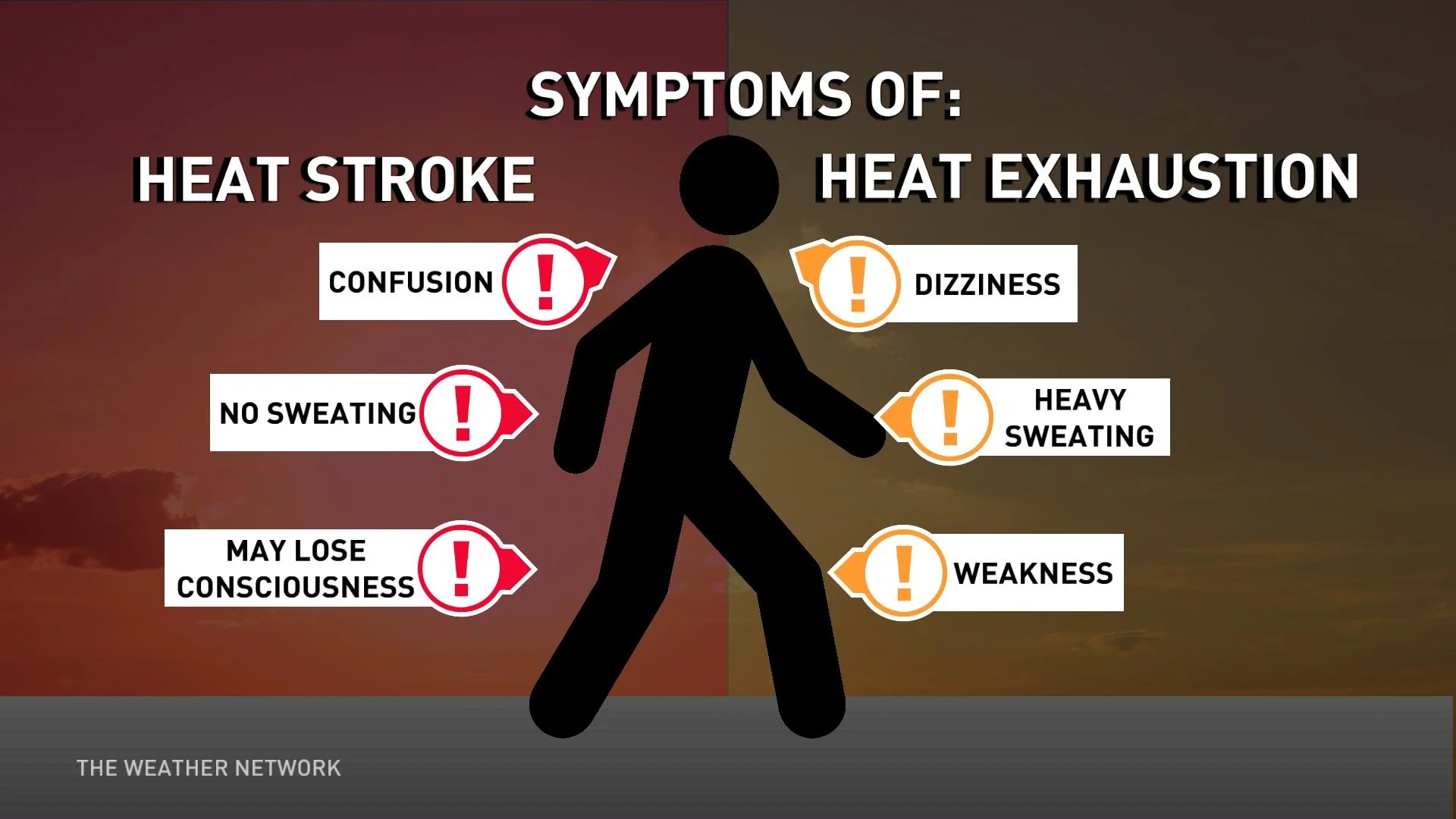
High fire danger in B.C. as heat gives Canada’s hottest temperature of the year
As high heat continues, thunderstorms are increasing concerns about lightning strikes starting fires across the province
As heat warnings continue for British Columbia, fire danger ratings remain high across the province.
DON'T MISS: Get the latest wildfire news and safety tips to help you stay safe
On Thursday, large areas of southern and central B.C. will face high levels of fire danger, while south of Smithers and Vancouver Island see extreme level ratings.

While heat warnings are still in place in Fraser Canyon, Okanagan Valley and for much of the interior. Environment and Climate Change Canada (ECCC) is warning of continued high daytime heat of 30°+ and very warm overnight lows.
Hottest temperature in Canada this year
In this extreme heat, Canada saw its highest temperature on Wednesday, with Lytton living up to its reputation as one of country's hot spots, being the first to break 40°C this year.

Lytton is typically one of the hottest places in the country; in fact, it holds the record for the hottest temperature ever recorded in Canada at 49.6°C during the deadly heatwave in the summer of 2021.
But with such warm values, there is a serious risk to the health of seniors and people with pre-existing health conditions.
Thunderstorms with minimal rainfall, but risk of lightning
Another concern is the possibility of severe weather across B.C.
Thunderstorms are forecast across almost all of B.C. on Thursday, with severe storms in the northern parts, dipping into northern Alberta, as well.

Friday, we’ll see this threat move eastward, but it will intensify in southern B.C. along the U.S.-Canada border.

These storms, and the forecast altogether are calling for very little rain as we head into the beginning of August.
Most of the rain is expected along the interior, with a large part of it in the south for Friday afternoon.

This will leave the coast with a dry pattern, but it will still be within the range of normal for now.

Hot weather safety tips
Drink plenty of water. Avoid caffeine and alcohol, which can be dehydrating.
Avoid direct sunlight, especially during peak hours and when the UV rating is high.
Wear lightweight, loose-fitting clothing.
Use air conditioning when possible. If you do not have access to air conditioning, consider visiting a cooling centre, a shopping centre, or a public library.
Check on elderly relatives and other vulnerable neighbours.

Stay with the Weather Network for updates on the heat in British Columbia
